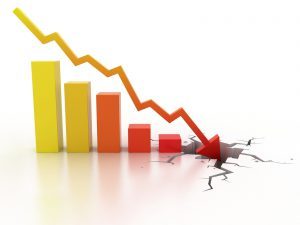Individuals are lousy investors because of human behaviour
July 14, 2016

Individual investor’s track record is often poor or very poor.
This fact is not new, and now we have additional information confirming that the long history of underperformance continues.
Dalbar is an independent U.S. company that provides financial services industry research, and publishes a report titled Quantitative Analysis of Investor Behavior. The goal of the report is to evaluate the performance of individual investors against the underlying markets they invest in.
In June, Dalbar released its 22nd annual report based on U.S. investors investing in U.S. stocks for the period ending December 31, 2015.
Last year the U.S. stock market, as measured by the S&P 500 Index, had an annual return of 1.38 percent. Investor returns suffered a loss of -2.28 per cent.
Over the past three years the S&P 500 had an annual return of 15.13 percent compared to individual investors only achieving a three-year annualized return of 8.85 percent.
In both cases individual investors had investment returns significantly less than the market they invested. Specifically, they underperformed the market by 3.66 percent last year and 6.28 percent for each of the last three years.
Most of the cause for this underperformance is the responsibility of the investor.
Investors do face certain headwinds when investing in the markets.
You are not able to invest in the S & P 500 directly so whichever investment vehicle you choose will have an associated cost. Plus, there are ongoing costs of transactions that must be accounted for.
Regardless of the cost of owning investments, having investment underperformance by such significant amounts can only mean that individual investors do an extremely poor job at investing.
The single most important factor causing underperformance is human behaviour. Stated another way and respectfully; we are the problem.
Regrettably, humans are lousy investors.
We react impulsively as a result of short-term news, and impulsively continue to adjust a long-term investment strategy as a result of short-term noise.
When markets react negatively to short-term news, investors should accept this willingly because that is how markets are supposed to react. Investing in the stock market is an excellent long-term asset class but it needs time to deliver excellent long-term returns.
Normal stock market volatility results in short-term returns that reflect normal volatility. It is beneficial to look at stock market returns over much longer periods than the one year and three year time provided above.
In rounded numbers the average annual return from the S&P 500 over the last 30 years is 10 percent and individual investors underperformed annually in the amount of 7 percent.
The 20 year average annual return from the S&P was 8 percent and individual investors underperformed by 4 percent annually.
My recommendation is to use the Dalbar research to your advantage. That starts with the realization that you are probably not a very good investor.
I encourage you to realize the normal mistakes most of us make when investing, and develop an investment strategy that will help you overcome the underperformance individual investors face.
If as a result of this exercise you can improve your investment returns by two or three per cent annually, then you can feel the accomplishment of proactively managing your investments.
Individual investors have a history of getting lousy returns. Hopefully you can be one of the lucky ones and buck this pattern.
